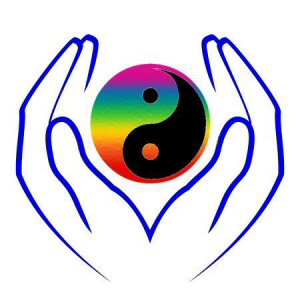




Jed Shlackman, LMHC, assists clients in the Miami and South Florida area who are seeking support with adressing marriage and relationship chalenges. Here Jed has provided an explanation of his approach to addressing these issues.Marriage and relationship difficulties are a common reason that people seek professional help or guidance from counselors and therapists. Intimate relationships can be one of the sources of our greatest joy and fulfillment in life, however they can also be a source of much pain and suffering. We each have our own unique collections of values, beliefs, and expectations about relationships and life, and it is inevitable that conflict and discord will arise at times in our relationships. How we process and handle those challenges can determine whether we maintain our bond or choose to dissolve the relationship. If we have mutual respect, appreciation, and compassion for one another and can communicate in constructive ways that promote understanding and conflict resolution we have a better chance of sustaining and deepening our relationships.
Let's be straight and honest with ourselves. Sometimes, when challenges arise, we become frustrated and resentful and start to attack or condemn the other person, playing out our internal fears, anger, and insecurity by seeking to control or demean the other person. If this starts to occur it is vital to catch ourselves and shift our reactions before we tear apart our bonds. We can learn to forgive ourselves and our partners for having these insecurities and emotional triggers. We must also pursue our own personal healing work to bring resolution to those patterns and issues from our past that are influencing us in the present. To some extent, we all manifest some degree of codependency. We are attached to and dependent upon other people meeting some emotional need in order to feel at peace, secure and fulfilled. When we are too highly dependent upon the support, nurturance, and approval of others, then we can overreact when we are not receiving that positive emotional feedback.
Relationships, by design, bring opportunities to confront the imbalances and insecurities within ourselves, to replay unresoved patterns from our past. People often find partners who reflect the dyamics of relationships that were presented in childhood with parents or siblings. Are we too controlling or manipulative? Are we too people-pleasing or overly self-sacrificing? Do we avoid confrontation or do we provoke conflict? What other patterns or tendencies are we re-enacting? We may expect a partner to fill some emotional need or void and get upset with them for disappointing us rather than accepting them for who they are. Relationships can be based upon codependent security and control seeking or upon the wish to mutually support one another. If you wish to be present in a relationship and able to offer support then you need to be more whole and centered enough within yourself to handle challenges without reacting in ways that diminish or pull down your partner.
Many people speak about improving communication with their partners and loved ones. When we communicate, do we seek to gain more compassion and understanding for the other person or do we wish to convince the other person of our own perspective or "right-ness?" Are we offended if the other person fails to appreciate our own viewpoint? Does our own need to feel "right" and accepted keep us from being more realistic or making reasonable compromises?
When we have matured enough as individuals we can exist in relationships that function more as spiritual partnerships rather than need-filling codependency based relationships. The typical relationship model in our society is often geared more toward codependency. Listen to popular music and watch popular entertainment and you will see and hear insecure people looking for someone to make them happy or bring them security. In a spiritual partnership we are supporting each other and accepting our differences, even accepting the potential that our paths could at some point lead in different directions. When we are more spiritually centered in our being then we communicate openly with the ability to listen and to better understand each other, without fear of being judged or rejected.
Divorce and separation are not to be seen as signs of failure. They can be natural transitions when a relationship is no longer valuable or productive for those involved to continue. We can always choose to try to maintain a relationship, yet we can honestly ask ourselves if that is the best choice for all concerned. If we conclude that it is something highly valued and a priority to remain together, then we must address the issues within ourselves and the relationship that are interfering with the functionality of the relationship and the level of fulfillment that is present.
If we conclude that our lives are no longer compatible with a partner, or that one or both partners are not ready, willing, or able to make the shifts that are needed to help rebuild rather than further shatter the bond of the couple, then we can do so without judgment or condemnation toward the other person or ourselves. There is no failure, only learning and evolution. It is an opportunity to heal our emotional wounds, our fears, resentments, and insecurities, so that we will be more fully present, more conscious, compassionate, and open-hearted in our future relationships.
